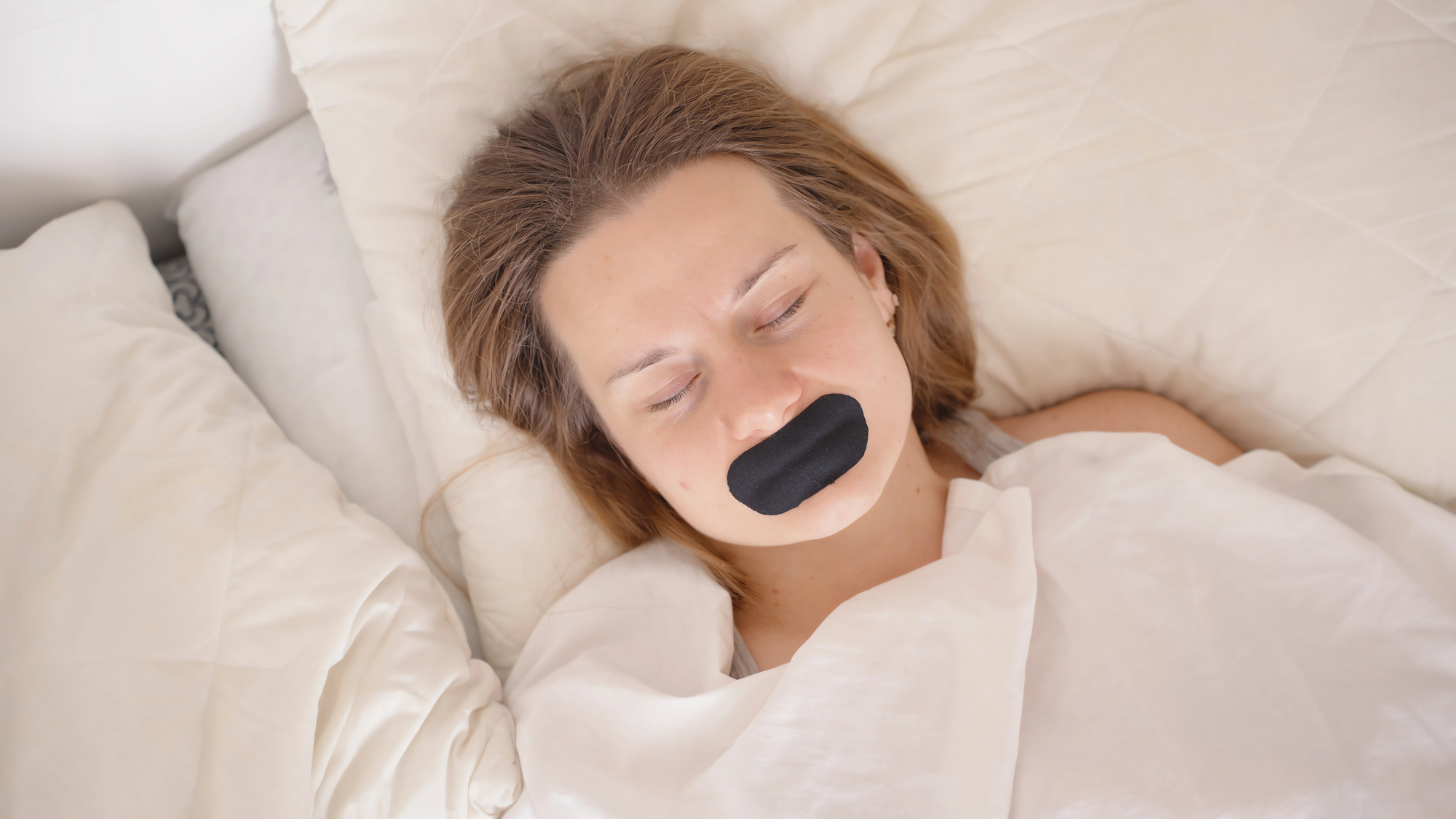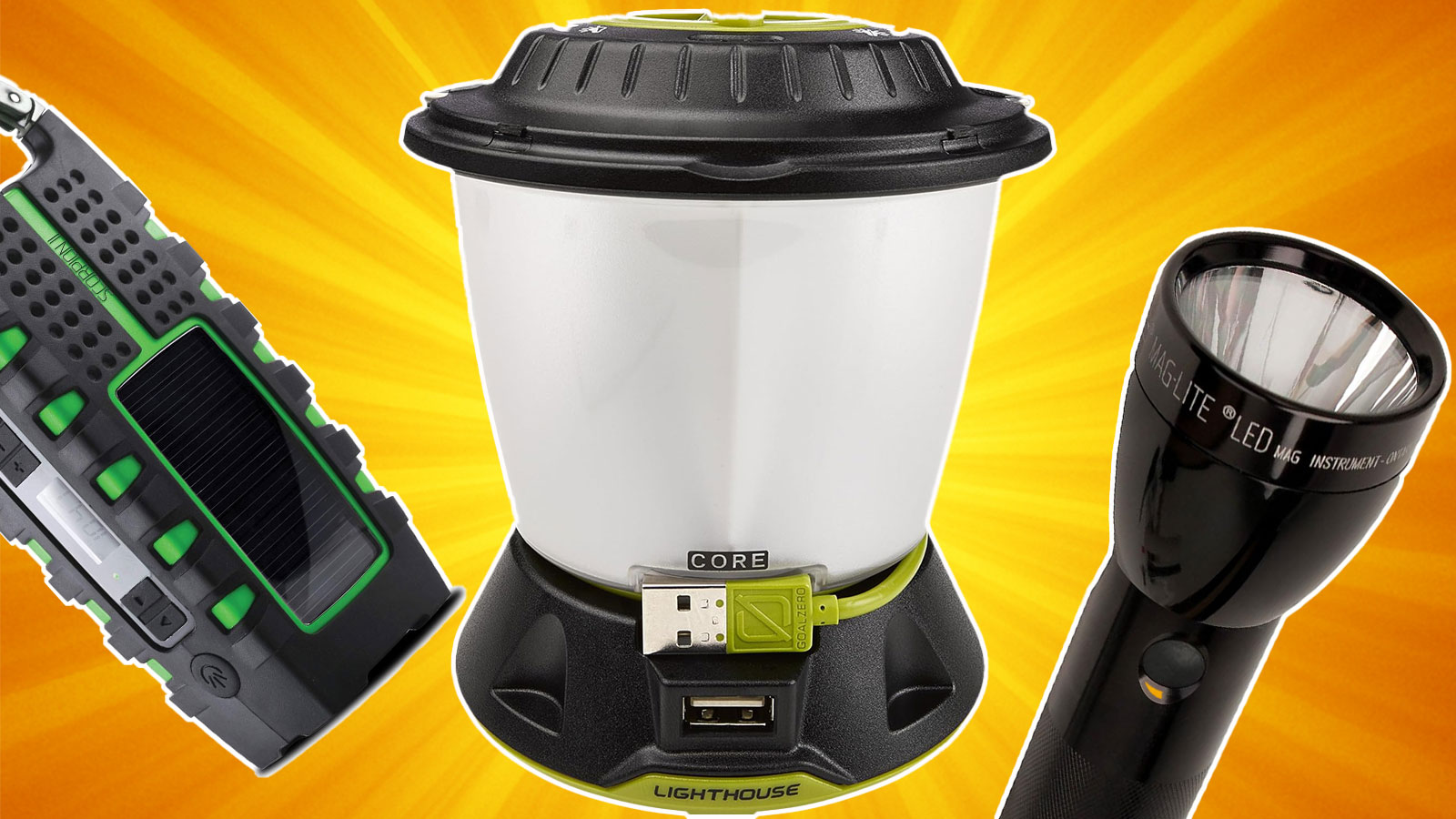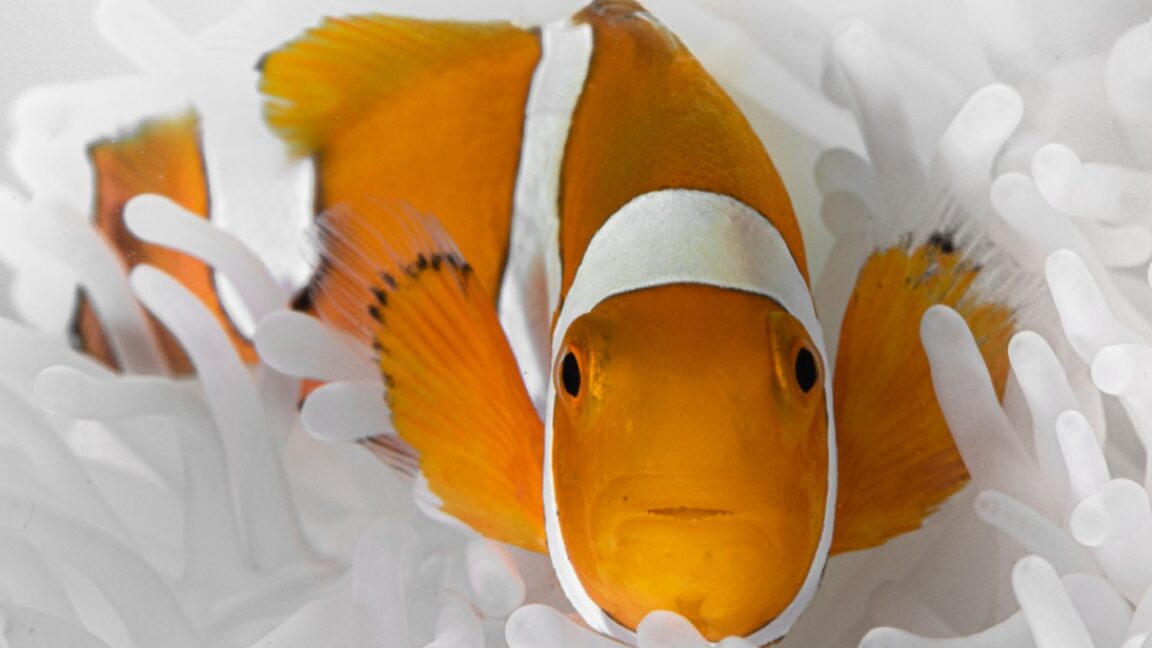Don’t tape your mouth before bed
Multiple previous studies indicate mouth taping isn't very helpful, and may actually be dangerous. Credit: Deposit Photos
Get the Popular Science daily newsletter
Breakthroughs, discoveries, and DIY tips sent every weekday.
One of social media’s most recent alleged health hacks is “mouth taping.” Countless TikTok accounts and wellness articles are touting the supposed benefits of attaching an adhesive strip of tape over your lips before turning in for the night. Promised results include improved sleep quality, an end to snoring, better oral health, and somehow even a strengthened jawline.
It probably doesn’t take much pause before a few questions spring to mind. What if your snoring is particularly bad? What if you deal with sleep apnea? What if you simply aren’t thrilled at the thought of sealing your mouth shut before falling unconscious for hours at a time?
Researchers at Western University in Canada recently reviewed 10 previously published studies that examined mouth taping as far back as 1999. Their resulting paper published on May 21 in PLOS One lays out what may be a pretty predicable conclusion: Please don’t try mouth taping at home without consulting an actual medical professional.
Terrible TikTok advice
There are many reasons why you may involuntarily switch from breathing through your nose to your mouth when asleep. Simple congestion from a cold or allergies is often enough to block nasal passages, while a deviated septum coupled with other health factors may result in obstructive sleep apnea. Depending on the individual, relief often comes from any combination of medication, exercise, dieting, or medical devices like a CPAP machine.
But in recent months, various media outlets and social media accounts have suggested taping your mouth closed before going to bed as a quick and easy workaround. The implied logic here is that if your respiratory system no longer has your mouth as an option, it’ll simply make sure your nose can pick up the slack.
This, if you can believe it, is not how things work.
“Mouth taping is a contemporary practice that is often celebrity-endorsed, but is not necessarily scientifically accurate,” the study’s authors explained in a statement. “Many people are not appropriate for mouth taping, and in some cases it can lead to risk of serious health harm.”
Scant evidence and an asphyxiation risk
To reinforce their warning with actual science, researchers reviewed 10 studies on mouth taping’s efficacy that collectively involved a group of 213 patients. Out of those 10 investigations, just two suggested that a small subset of people with mild obstructive apnea may see “some slight improvement” in their sleep.
Meanwhile, other studies didn’t determine any evidence to support taping your mouth for reducing sleep-disordered breathing, snoring, or apnea. Nearly half of the reviewed studies also included discussions regarding the possibly serious risks of asphyxiation.
“There was explicit discussion in four out of ten of the studies indicating that oral occlusion either through taping, sealing, or chin strapping could pose a serious risk of asphyxiation in the presence of nasal obstruction or regurgitation,” the authors write.
This danger could be especially serious for people dealing with any number of common respiratory troubles, including sinonasal disease, enlarged tonsils, hay fever, chronic rhinitis, or a deviated septum.
Mouth taping isn’t necessarily terrible across the board, however. The reviewers note there appears to be a “very specific use-case scenario” for people with mild obstructive sleep apnea. In those cases, blocking the mouthway “may improve” their apnea-hypopnea index, a common medical measurement that tallies disruptive sleep events per hour.
But in general, it’s clear that taping your mouth based on the advice of total strangers online is not a great idea.“It seems that there is a potentially serious risk of harm for individuals indiscriminately practicing this trend,” the paper’s authors conclude while cautioning that, “Further studies are required to elucidate any clinical benefit this practice may have.”
If you are suffering from poor sleep, excessive snoring, or dry mouth due to sleep issues, the best remedy remains consulting with a qualified medical professional—preferably one who isn’t looking to boost their follower count.
#dont #tape #your #mouth #before
Don’t tape your mouth before bed
Multiple previous studies indicate mouth taping isn't very helpful, and may actually be dangerous. Credit: Deposit Photos
Get the Popular Science daily newsletter💡
Breakthroughs, discoveries, and DIY tips sent every weekday.
One of social media’s most recent alleged health hacks is “mouth taping.” Countless TikTok accounts and wellness articles are touting the supposed benefits of attaching an adhesive strip of tape over your lips before turning in for the night. Promised results include improved sleep quality, an end to snoring, better oral health, and somehow even a strengthened jawline.
It probably doesn’t take much pause before a few questions spring to mind. What if your snoring is particularly bad? What if you deal with sleep apnea? What if you simply aren’t thrilled at the thought of sealing your mouth shut before falling unconscious for hours at a time?
Researchers at Western University in Canada recently reviewed 10 previously published studies that examined mouth taping as far back as 1999. Their resulting paper published on May 21 in PLOS One lays out what may be a pretty predicable conclusion: Please don’t try mouth taping at home without consulting an actual medical professional.
Terrible TikTok advice
There are many reasons why you may involuntarily switch from breathing through your nose to your mouth when asleep. Simple congestion from a cold or allergies is often enough to block nasal passages, while a deviated septum coupled with other health factors may result in obstructive sleep apnea. Depending on the individual, relief often comes from any combination of medication, exercise, dieting, or medical devices like a CPAP machine.
But in recent months, various media outlets and social media accounts have suggested taping your mouth closed before going to bed as a quick and easy workaround. The implied logic here is that if your respiratory system no longer has your mouth as an option, it’ll simply make sure your nose can pick up the slack.
This, if you can believe it, is not how things work.
“Mouth taping is a contemporary practice that is often celebrity-endorsed, but is not necessarily scientifically accurate,” the study’s authors explained in a statement. “Many people are not appropriate for mouth taping, and in some cases it can lead to risk of serious health harm.”
Scant evidence and an asphyxiation risk
To reinforce their warning with actual science, researchers reviewed 10 studies on mouth taping’s efficacy that collectively involved a group of 213 patients. Out of those 10 investigations, just two suggested that a small subset of people with mild obstructive apnea may see “some slight improvement” in their sleep.
Meanwhile, other studies didn’t determine any evidence to support taping your mouth for reducing sleep-disordered breathing, snoring, or apnea. Nearly half of the reviewed studies also included discussions regarding the possibly serious risks of asphyxiation.
“There was explicit discussion in four out of ten of the studies indicating that oral occlusion either through taping, sealing, or chin strapping could pose a serious risk of asphyxiation in the presence of nasal obstruction or regurgitation,” the authors write.
This danger could be especially serious for people dealing with any number of common respiratory troubles, including sinonasal disease, enlarged tonsils, hay fever, chronic rhinitis, or a deviated septum.
Mouth taping isn’t necessarily terrible across the board, however. The reviewers note there appears to be a “very specific use-case scenario” for people with mild obstructive sleep apnea. In those cases, blocking the mouthway “may improve” their apnea-hypopnea index, a common medical measurement that tallies disruptive sleep events per hour.
But in general, it’s clear that taping your mouth based on the advice of total strangers online is not a great idea.“It seems that there is a potentially serious risk of harm for individuals indiscriminately practicing this trend,” the paper’s authors conclude while cautioning that, “Further studies are required to elucidate any clinical benefit this practice may have.”
If you are suffering from poor sleep, excessive snoring, or dry mouth due to sleep issues, the best remedy remains consulting with a qualified medical professional—preferably one who isn’t looking to boost their follower count.
#dont #tape #your #mouth #before
·14 Views









